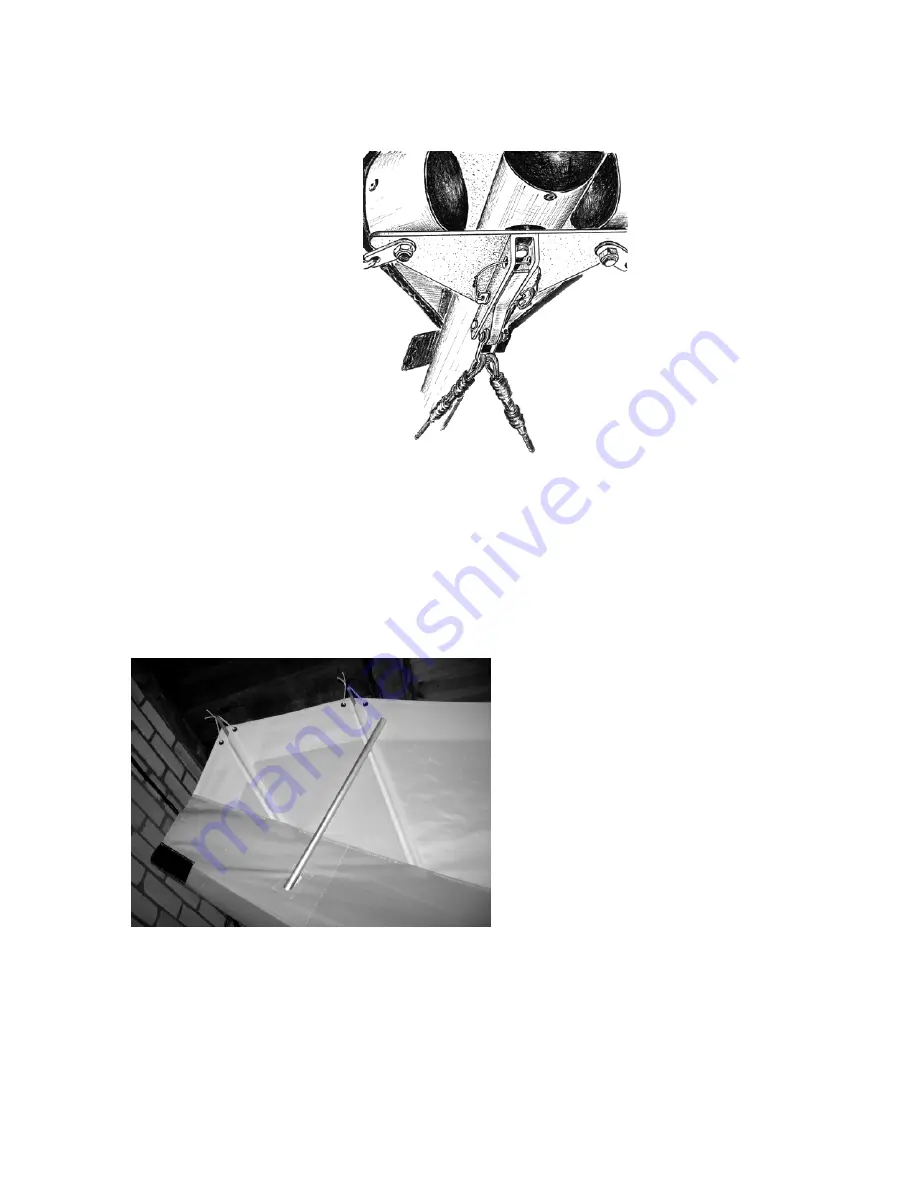
2.2.14. Put the glider on the A-frame. Secure the nose catch of the bottom wires on the nose
junction channel using the clevis pin and the safety ring (Fig. 20).
Fig. 20
Check all wires for twisted thimbles or tangs.
2.2.15. Install the washout tips: swing them to the right place underneath the corresponding top
surface battens through the hole in the bottom surface (Fig. 21).
Fig. 21
12
Summary of Contents for Still 17
Page 3: ...2 ...
Page 7: ...b Fig 3 4 ...
Page 25: ...23 LOG BOOK TABLE OF FLIGHT HOURS DATE NUMBER OF FLIGHT TOTAL HOURS BY WHOM ...
Page 26: ......
Page 27: ......
Page 28: ......
Page 29: ......
Page 30: ......
Page 31: ......
Page 32: ......
Page 33: ......
Page 34: ......
Page 35: ......
Page 36: ......
Page 37: ......
Page 38: ......
Page 39: ......
Page 40: ......
Page 41: ......
Page 42: ......
















































